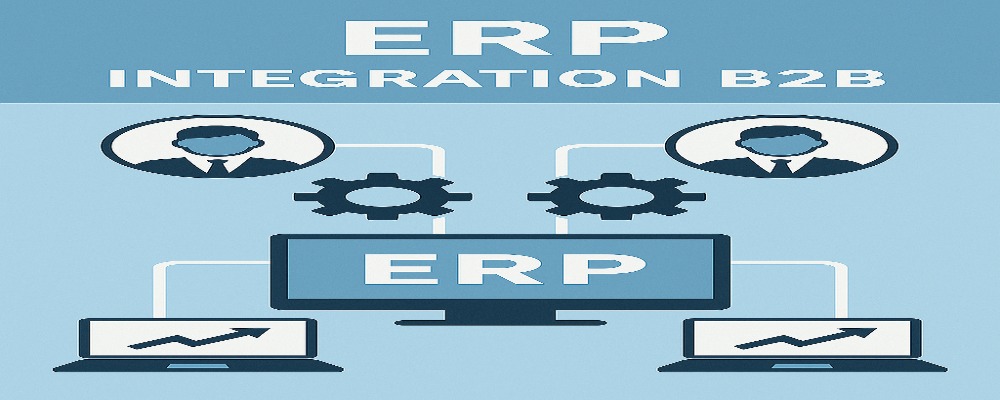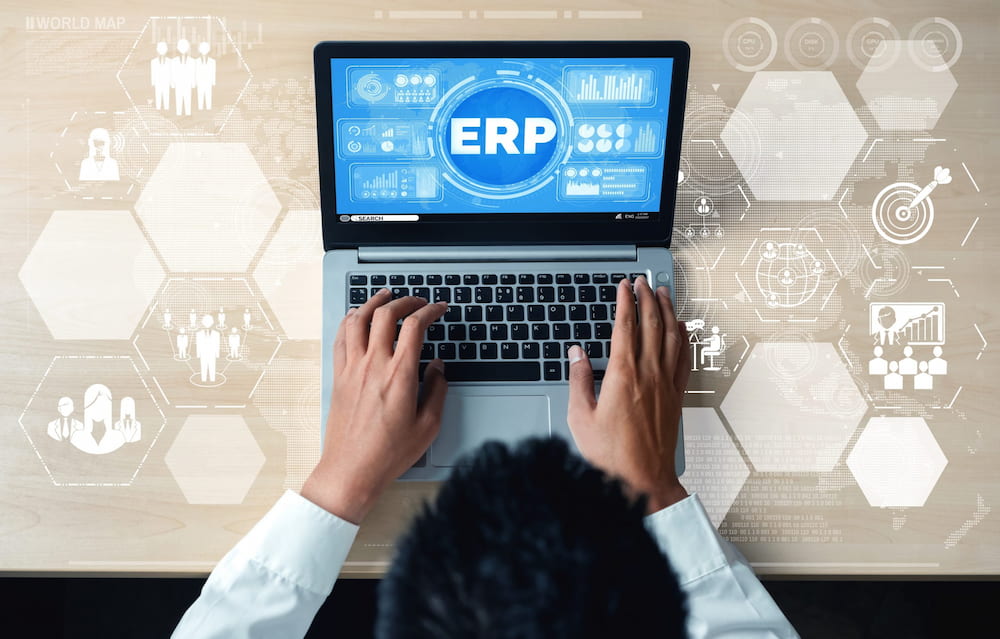In today’s fast-moving commerce environment, the ability to synchronize enterprise processes has become a cornerstone of B2B success. Among the technologies rising to meet this demand, ERP integration in B2B (Enterprise Resource Planning integration in Business-to-Business transactions) stands out as a game-changer. This article dives deep into how ERP integration helps companies streamline operations, boost data accuracy, and build strong digital partnerships — while staying realistic about the challenges involved.
Whether you’re an SME owner, IT manager, or enterprise architect, you’ll find useful insights here — not just fluff. And for those curious minds, we’ve also included a “People Are Always Asking” section, real user reviews and expert opinions.
What is ERP Integration in B2B?
At its core, ERP integration B2B refers to connecting an ERP system with a company’s external partners—suppliers, distributors, logistics providers, and customers—so that data flows automatically between them. Think of it as replacing endless emails and spreadsheets with a well-oiled digital pipeline.
When done right, ERP integration ensures:
- Real-time inventory updates across partners
- Automated order-to-cash processes
- Reduced manual data entry errors
- Faster fulfillment and invoicing cycles
Want to learn how to tailor ERP integrations for your business model?
👉 Dive into Singleclic’s B2B & B2C Solutions and ERP Services
Benefits of ERP Integration for B2B Operations
Integrating your ERP into your B2B ecosystem delivers a range of benefits, especially when scaling operations or partnering with large enterprises. Here are the standout advantages:
1. Increased Efficiency
- Orders, invoices, and shipping notices are synced automatically.
- Less time spent on manual processing = lower operational costs.
2. Improved Data Accuracy
- Fewer human errors thanks to automation.
- Real-time updates reduce conflicts between departments and partners.
3. Scalability
- Easily onboard new vendors, marketplaces, or clients.
- Supports growth without overburdening your staff.
4. Enhanced Customer Experience
- Faster order fulfillment.
- Transparent tracking and smoother returns process.
“People Are Always Asking”: Key ERP B2B Questions Answered
Is ERP integration worth the effort for small businesses?
Yes, especially if you’re handling multiple B2B relationships. Even basic integrations with inventory and CRM modules can bring surprising ROI.
Do all ERP systems support B2B integration?
Most modern ERP systems—like SAP, Oracle, Microsoft Dynamics, and Odoo—support API or EDI-based integration. However, the ease of integration depends on the system’s architecture and your partners’ capabilities.
How long does it take to implement?
Depending on complexity, ERP B2B integration can take anywhere from 3 weeks (for plug-and-play APIs) to 6 months (for full EDI rollouts across multiple partners).
Real Review: A Business Owner’s Perspective
“When we rolled out ERP integration with our top B2B partners, our fulfillment time dropped by 30%, and we had full visibility across every warehouse. But getting the data mapping right was crucial — especially with custom pricing models.”
— Tamer Badr, CEO of Singleclic
Tamer adds:
“The key is finding an integration partner who understands both the tech and the business logic. That’s what makes or breaks your ERP integration project.”
Top ERP Integration Services for B2B (With Pros & Drawbacks)
Here’s a quick overview of some widely-used ERP integration services that support B2B operations:
1. Dell Boomi
Pros:
- Drag-and-drop interface.
- Prebuilt connectors for SAP, NetSuite, and more.
Cons:
- Can get pricey as you scale users and endpoints.
- Limited control for complex logic flows.
2. MuleSoft (by Salesforce)
Pros:
- Enterprise-grade scalability.
- Ideal for hybrid (cloud + on-premise) environments.
Cons:
- Requires strong developer expertise.
- Licensing can be complex for smaller businesses.
3. Celigo
Pros:
- Tailored for NetSuite users.
- Good balance between usability and customization.
Cons:
- Works best within specific ecosystems (NetSuite, Salesforce).
- May need multiple modules for complete B2B integration.
4. Jitterbit
Pros:
- Robust API management.
- Suitable for EDI and custom integrations.
Cons:
- User interface feels outdated.
- Documentation could be more beginner-friendly.
5. Singleclic ERP Integration Services
Pros:
- Personalized approach with hands-on consultation.
- Deep understanding of both B2B commerce and ERP ecosystems.
Cons:
- May not offer instant plug-and-play for all ERPs.
- Requires commitment to a strategic implementation plan.
Common Pitfalls in ERP B2B Integration
Even with the best intentions and tools, ERP integration can hit snags. Here’s what to watch out for:
- Poor Data Hygiene: Garbage in, garbage out. Ensure your internal data is clean and structured.
- Unclear Business Rules: If each partner uses different logic (e.g., pricing rules, order minimums), you need to codify that clearly.
- Lack of Change Management: Staff must be trained to adapt to new workflows.
- Over-Customization: Custom code can be brittle and hard to maintain. Whenever possible, use standard APIs and connectors.
Quick Checklist: Is Your Business Ready for ERP B2B Integration?
✅ Do you frequently exchange data with vendors or customers?
✅ Is your current manual processing slowing you down?
✅ Are you experiencing errors or delays in your order cycles?
✅ Do you use a modern ERP system with API or EDI support?
✅ Are your partners also technologically capable?
If you answered “yes” to three or more, it’s probably time to start planning your integration journey.
FAQs
Q: Can I integrate ERP with just one B2B partner to start?
A: Absolutely. Many businesses begin with their largest or most tech-savvy partner and expand gradually.
Q: Do I need to hire a full-time IT team for ERP integration?
A: Not necessarily. Many companies rely on consultants or agencies like Singleclic for tailored deployment.
Q: Is cloud-based ERP better for B2B integration?
A: In most cases, yes. Cloud-based ERPs are easier to integrate via APIs and offer better uptime.
Final Thoughts: Make It Count
ERP integration in B2B is not just about technology—it’s about trust, timing, and transformation. Done right, it can save you hundreds of hours and open doors to partnerships with enterprise-grade clients.
💡 As Tamer Badr says:
“ERP integration doesn’t just streamline your operations — it changes how you’re perceived in the market. It tells your partners you’re serious, scalable, and ready for real growth.”
If you’re ready to make ERP integration your B2B superpower, now’s the time to act.
Let your systems do the talking — and focus on growing your business.










